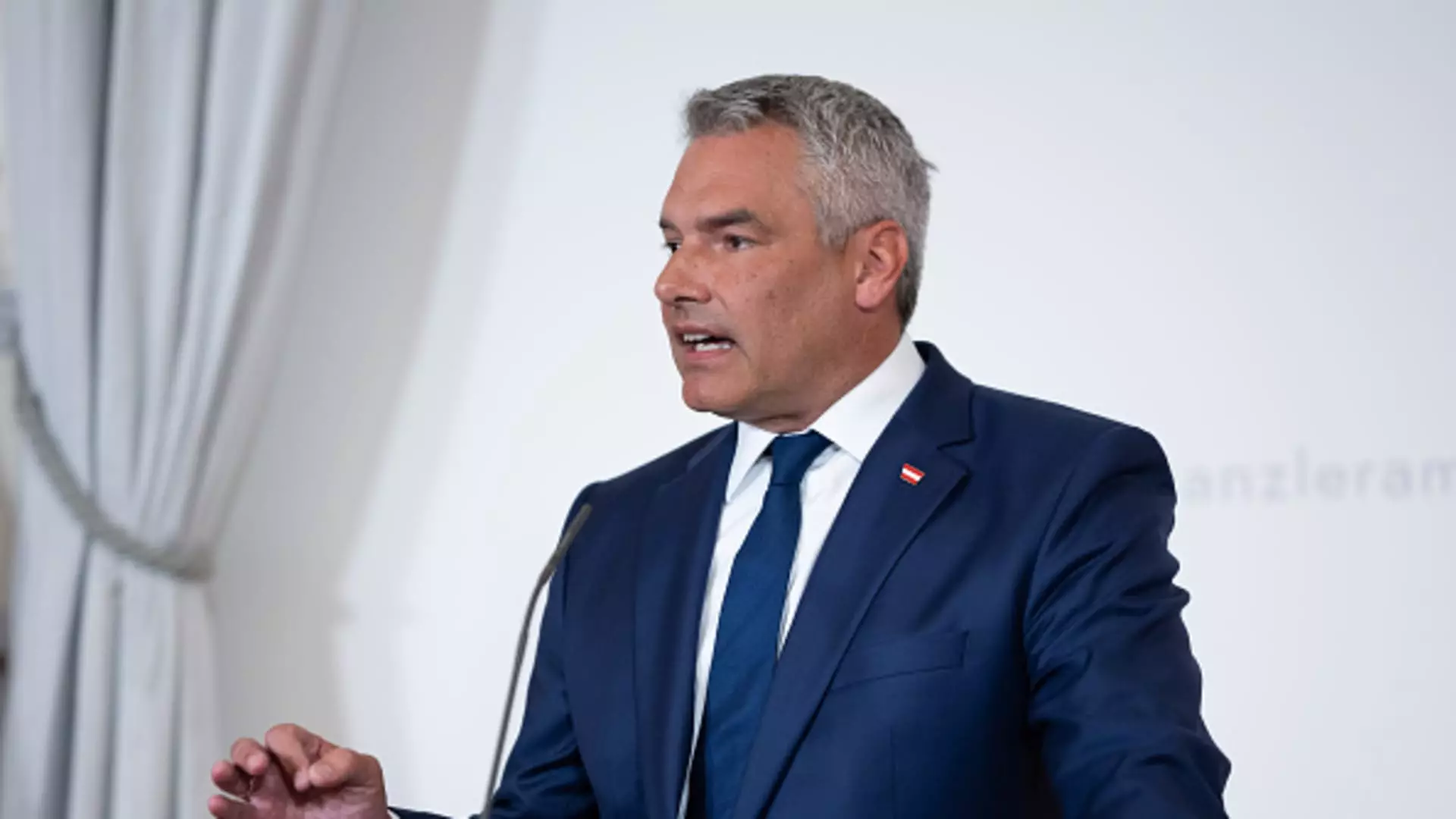Recent events in Austria have exposed the complexities and fragilities of European political landscapes, particularly as traditional centrist parties grapple with rising populism and divergent ideologies. The failure of coalition negotiations between Austria’s two principal centrist parties, the People’s Party (ÖVP) and the Social Democrats (SPÖ), has prompted significant upheaval, culminating in the announcement of Chancellor Karl Nehammer’s impending resignation. This disintegration of alliances comes on the heels of the liberal Neos party exiting the talks, blaming its counterparts for an inability to make necessary compromises, indicating a breach in the cooperative spirit that often underpins coalition governments.
Nehammer expressed his decision to step down publicly via a video message on social media, emphasizing his intention to facilitate a smooth transition. Such transparency in communication is often crucial in political transitions, yet it underscores the gravity of the situation in Austria, where the far-right Freedom Party (FPÖ) has become a formidable political force.
Challenges of Governance in Europe
The complications arising from the stalled coalition talks highlight a broader trend observed across Europe, particularly in nations like Germany and France, where the socio-political landscape has shifted dramatically. Increasing support for far-right ideologies has created a climate of caution among many centrist parties, reluctant to affiliate with groups they view as extreme, despite these parties commanding significant electoral support.
During the September parliamentary elections, the FPÖ emerged as the dominant party, securing approximately 29% of the vote. These dynamics pose difficult questions about the direction of governance and citizen representation. Nehammer’s unequivocal refusal to collaborate with FPÖ leader Herbert Kickl, despite the latter’s significant influence, only exacerbates the power vacuum. As Nehammer steps aside, Austrian President Alexander Van der Bellen faces the daunting task of either appointing Kickl or calling for a snap election. Both options present their own complications, highlighting an unstable road ahead for Austrian governance.
The growing divergence in public sentiment further complicates the Austrian political landscape. Opinion polls suggest a leaning toward the FPÖ, which currently holds a notable lead over both the ÖVP and the SPÖ. This shift in public opinion may result in a recalibration of political alliances and strategies, particularly within the ÖVP. Future leadership within the party may become more inclined to consider a coalition with the FPÖ, reflective of voter sentiment.
This political tug-of-war points to a disquieting reality for centrist parties, which find themselves navigating between a radicalized political environment and the expectations of their constituents. The historical precedent of collaboration between the ÖVP and FPÖ between 2017 and 2019 provides context but also reveals the precarious nature of such partnerships, especially after the prior coalition’s downfall due to scandal.
Critics, including SPÖ leader Andreas Babler, have been explicit about their concerns regarding the prospect of a government led by Kickl. Babler has warned that a coalition between the FPÖ and ÖVP could give rise to a government led by a right-wing extremist, profoundly affecting the democratic fabric of the nation. This rhetoric resonates amid more significant concerns about the increasing normalization of far-right ideologies in mainstream conversations, reflecting a worrying trend across much of Europe.
Conversely, Kickl’s response to the coalition failure was a scathing dismissal of the centrist parties’ negotiations, which he likened to a failed “traffic-light coalition” while pointing fingers at key political figures, including President Van der Bellen. This blame game not only reflects the high stakes involved in these political dynamics but also highlights the potential for further fragmentation of an already polarized political environment.
The Road Ahead
As Austria stands at this critical juncture, the question remains: how will the nation reconcile its political divisions while navigating an emboldened far-right? The next steps are pivotal, as they will likely define relationships among Austria’s political factions for years to come. Whether Austria opts for a surprising alliance or a return to the ballot box, it is a time of reflection and potential reinvention in a nation struggling to find consensus amidst growing disunity.

Leave a Reply